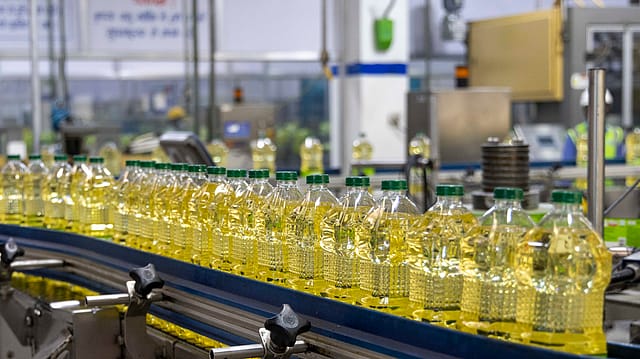Indonesia reverses ban on palm oil exports
ADVERTISEMENT

Indonesia, the world's largest palm oil producer, will lift its ban on palm oil exports from Monday after an improvement in domestic supply, president Joko Widodo said on Thursday.
The Southeast Asian country had announced a ban on palm oil exports last month to increase domestic availability amid rising prices.
Palm oil imports account for more than half of India's total imports in the vegetable oil segment. Indonesia supplies more than half of India's edible oil imports.
Indonesia's decision to ban palm oil exports rattled global vegetable oil markets that were already coping with a shortage of sunflower oil due to the Russia-Ukraine war.
The decision to lift the ban comes despite the price of bulk cooking oil having not yet receded to the targeted 14,000 rupiah per litre price, as the government considers the welfare of 17 million workers in the palm oil industry, the president said in a video statement.
"Average price of (bulk) cooking oil before the export ban in April was 19,800 rupiah per litre and after the ban the average price dropped to around 17,200 to 17,600 rupiah per litre," he said.
The move comes after hundreds of Indonesian farmers staged a protest in the capital Jakarta and in other parts of the country, asking the government to end its palm oil export ban that has cut their earnings.
Earlier this month, the Indian government said the country has an optimum stock of all edible oils to cover the lean period due to Indonesia's ban on palm oil exports.
The government, citing industry sources, said the present stock of all edible oils in the country is around 21 lakh metric tonnes (LMT) and around 12 LMT is in transit arriving in May 2022.
Palm oil — including crude and refined oil — constitutes roughly around 62% of the total edible oil imports in the country.
The government was banking on palm oil imports after shipments of sunflower oil — which comprises 15% of most Indian edible oil brands — were hit due to the Russia-Ukraine war. Ukraine and Russia together account for 90% of India's sunflower oil imports. Soybean oil, which comprises 22% of India’s total edible oil imports, is bought mainly from Argentina and Brazil.
The export ban had put half of India's palm oil supply under a cloud, while also increasing consumer inflation, according to India Ratings and Research.
Ind-Ra, however, had said that the ban is unlikely to sustain for a long duration, given that Indonesia consumes less than 40% of its total palm oil production, resulting in the impact being transitory.
International prices of edible oils are under pressure due to a shortfall in global production and increase in export levies by the exporting countries.